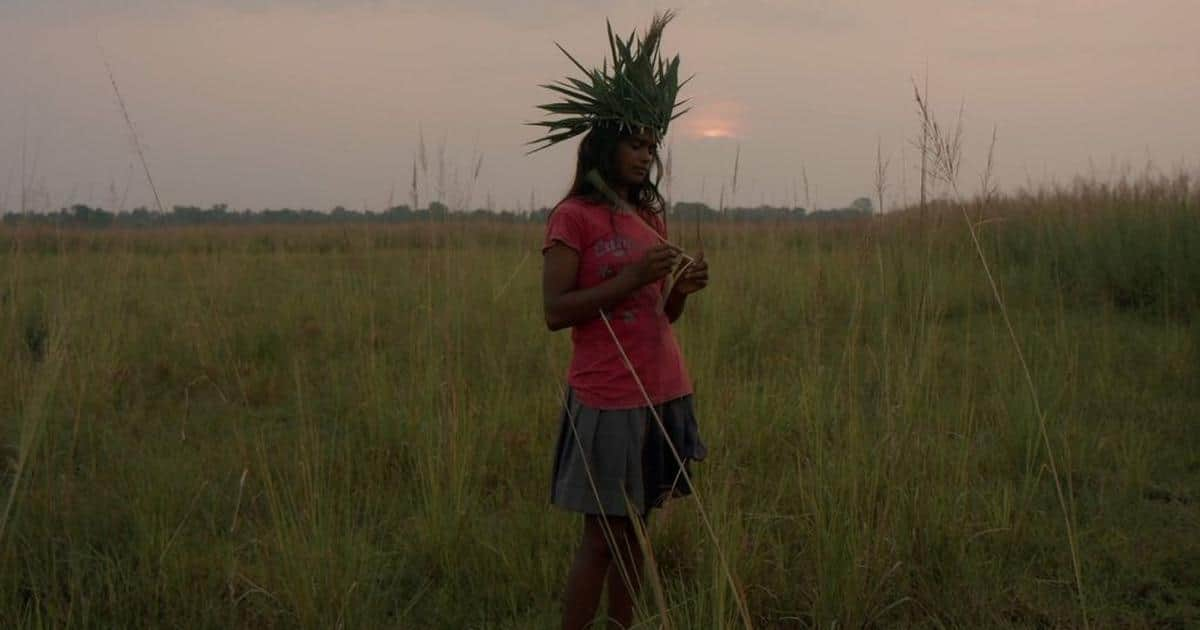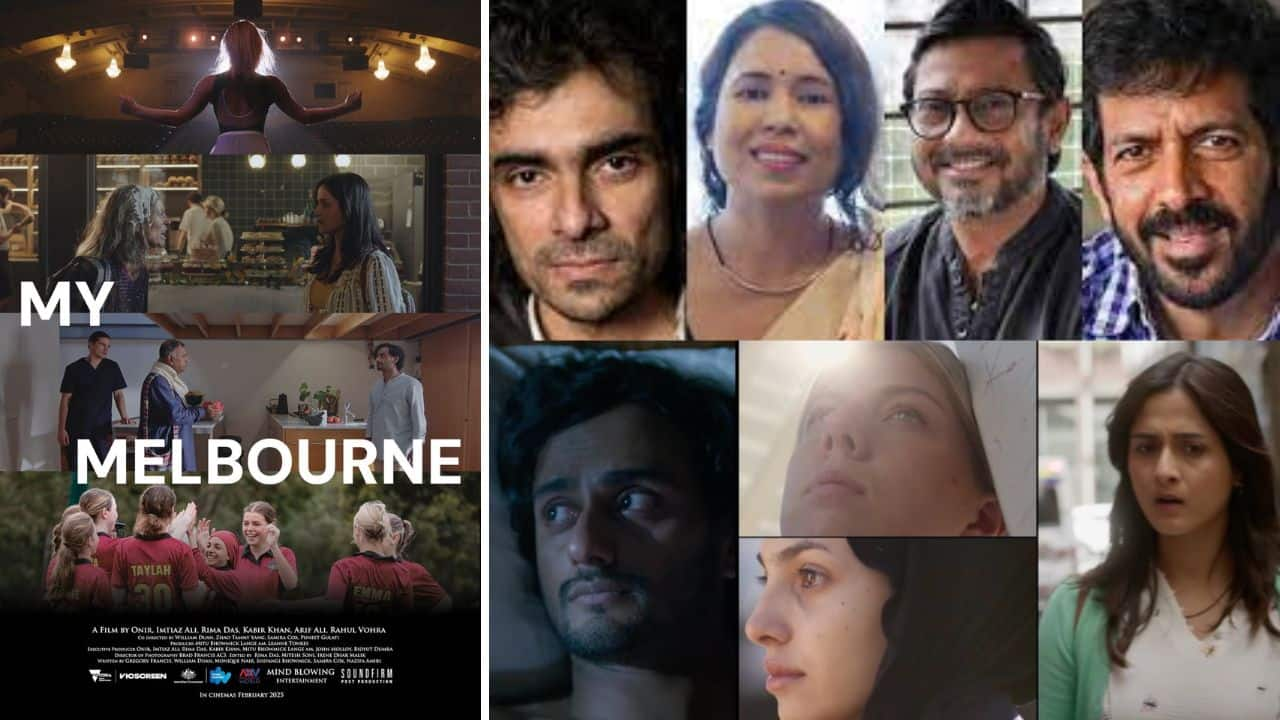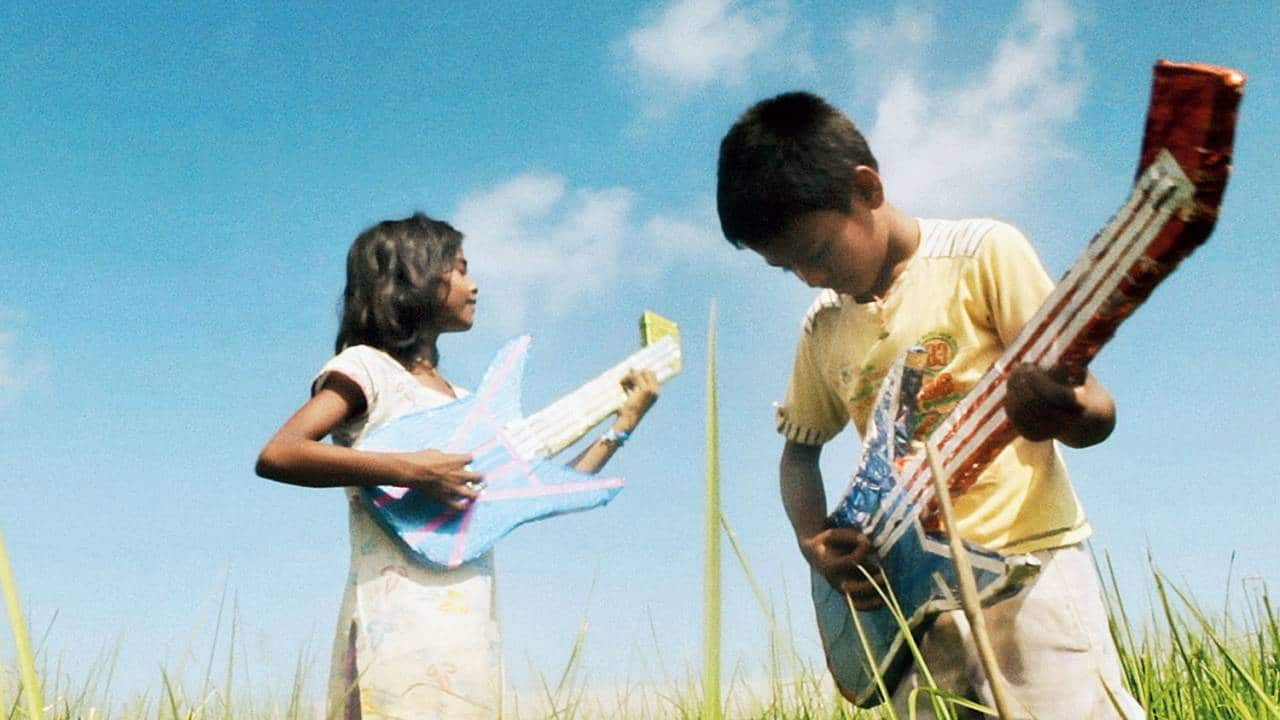



With a certain warmth, kindness and a big smile that few strangers are capable of, especially if they are celebrities, the internationally acclaimed Assamese filmmaker Rima Das meets me — after consuming a plate of hot gulab jamun — on the cold evening of the final day of the recently concluded 13th Dharamshala International Film Festival (DIFF) at the Tibetan’s Children’s Village school. She stepped out of the packed Hermann Gmeiner hall that screened Village Rockstars 2, the sequel to her 2017 National Award-winning Village Rockstars (which was also India’s official Oscar nominee that year). Last month, her latest film co-won the prestigious Kim Jiseok Award for the Best Film, along with Taiwan’s Tom Lin Shu-yu’s Yen and Ai-Lee, at the 29th Busan International Film Festival. Earlier this year, she was inducted as a member of the Academy of Motion Picture Arts and Sciences (AMPAS).
Her smile reaches her voice as the Mumbai-based Das says, “It makes me happy that many people come to me and tell me that my films, especially Village Rockstars got them inspired to start making films, so that is an achievement. In our country, the way large-scale films are made, we’ve seen big films since childhood, that when I came to Bombay, I never dreamt of doing this (making small-scale films) but when this film was made with a small camera and won the National Award, it created hope for me and for others.” Edited excerpts from an interview:
How does it feel that Village Rockstars 2 has won the Kim Jiseok Award?Very happy. When we started making Village Rockstars 2, I didn’t know how the journey of an independent film’s sequel would be. When the film was completed, I realised how to send the film to a festival and how it would be watched. Winning at Busan was quite encouraging for us.
When you made Village Rockstars, did you think of making a sequel?Not at all. But I remember when we used to watch Village Rockstars on the big screen, in the scene when the mother comes with a guitar on a deserted road and her daughter Dhunu strums it for the first time, I felt that it could have a future story, so that’s how I started thinking of Village Rockstars 2.
With your humanist films, Rima, you’ve been promoting Assamese cinema internationally. The Village Rockstars franchise is reminiscent of Satyajit Ray’s Pather Panchali (1955), and also of Aparajito (1956), showing Apu’s adolescene (and Dhunu’s in your film) and coming to terms with life’s realities, such as death. Like Ray, are you also thinking of a trilogy? In Village Rockstars 2, there’s a hint of Bimal Roy’s Do Bigha Zamin (1953) as well, with reference to one’s land. Have these filmmakers had any influence on you?Pather Panchali influenced me but I haven’t watched Do Bigha Zamin unfortunately and somewhere I was a bit scared, too. I had seen [Ray’s] Pather Panchali, Charulata (1964), and Apur Sansar (1959). After making Village Rockstars, people started talking and finding connections with Ray’s film. I was feeling good after listening to them that there are things in common but I was a bit scared, too. I am a very intuitive filmmaker, my [shot] framing and writing are very improvised. Since I’m not a trained cinematographer, so when I shoot on location, I shoot based on what I see around there and what I experience with my character. I don’t know if this is good or bad, but I haven’t watched their other films and I would like to watch them now.
 A still from 'Village Rockstars 2' (2024).In Village Rockstars 2, we see that Dhunu has grown up and is facing life situations. The symbol of mother and mother nature has continued in this film, too. But the sequel is bleaker compared to the hopeful Village Rockstars. Is that how you’d envisioned Dhunu’s life?
A still from 'Village Rockstars 2' (2024).In Village Rockstars 2, we see that Dhunu has grown up and is facing life situations. The symbol of mother and mother nature has continued in this film, too. But the sequel is bleaker compared to the hopeful Village Rockstars. Is that how you’d envisioned Dhunu’s life?In my childhood, when the floods used to come, we would be very happy. It felt good to play in the water, the school would remain closed. So, the first film Village Rockstars was seen from the perspective of Dhunu of that age and, in this film, when she is a teenager, her perspective changes and her struggle increases. A lot of things which you’d unsee or didn’t experience earlier, you start experiencing them. That is how this film has been treated. It is a natural progression.
Recently, you and singer Papon Angaraag registered your protest against the cutting of the historic trees around Dighalipukhuri in Guwahati. How important is it for an artist to be vocal about issues?That is a very personal thing, I feel that a person should not do anything under anyone’s pressure. Whatever is my experience and my art, I must speak out from there. Sometimes, I want to do a lot of things but what I need to do at that moment is very important for me. I feel God has given me a blessing that I can make films and tell stories, that is my first love, so I always try to do that.
Trees and nature form a formidable part of your films.I love nature, I like trees a lot. The trees, stones, mountains, rivers can’t make films so we need to make films on them. Earlier, we had songs on birds, on the sea, but all that has nearly vanished. So, since I have the art of filmmaking, I can make an impact, big or small, and with it, I keep trying to say something.
I, too, felt it to be peculiar despite growing up in the same village. But the more time you spend there, once you live there, gradually you start seeing and hearing more such things. So, when the rainbows were seen, the village elders would exclaim: the rainbows have come, so, water (flood) is coming. During Durga Puja, the elders would say, Maa Durga is coming on a boat. When you are so connected with — and your culture is so rooted in — nature, these things come naturally to you. It’s one thing to hear and say and another to experience it yourself, believe in it, and then speak from there. And it is happening with me, too.
ALSO READ: APSA nominated Assamese film Tora’s Husband maker Rima Das: ‘I read in the Bhagavad Gita that grief is also yoga, with it comes great development’Apart from Tora’s Husband (2023), your ‘rooted’ films despite getting global recognition don’t get released in Indian theatres. How do you feel when your films don’t reach a larger audience back home while people say Indian cinema is no longer connected to its roots?I both feel and don’t feel. Village Rockstars 2 is my fifth film, under our small production house Flying River Films, we rely on our strength and people’s love and from that we get encouragement and have got this far. Sometimes, there is a disappointment and I feel sad but, the thing is, when I look back at my journey and struggle in Bombay, and seeing where I have reached today, I feel very good and hopeful, thanks to domestic festivals like DIFF. I feel people who appreciate such films as ours are increasing not decreasing, and everyone who likes to watch such cinema needs to contribute a little to eke out that space. Someone told me that only 2-3 per cent people watch to make a big-budget film a Box-Office hit, and our country is so big. The day, the realisation is reached that our kind of cinema is necessary for our country and culture, some path will open up.
You are a one-woman army. You shoot, edit, write, direct, all by yourself. Has the size of your crew expanded now or are you still going it alone?(Laughs) It depends from film to film. Some films, I have worked on with a crew, and on Village Rockstars 2, initially, we had a small crew but it took me more time than I had planned for. It took me four years. And we work in natural light and natural conditions such as monsoons; to get a proper sunset shot, I have to wait for 10 days at times, so it isn’t possible to have a crew. But now I’m writing different types of stories.
 The Australian anthology of short films 'My Melbourne', directed by (top, right) Imtiaz Ali, Rima Das, Onir and Kabir Khan.Tell us about the anthology My Melbourne, in which you have a short film along with Onir, Kabir Khan and Imtiaz Ali.
The Australian anthology of short films 'My Melbourne', directed by (top, right) Imtiaz Ali, Rima Das, Onir and Kabir Khan.Tell us about the anthology My Melbourne, in which you have a short film along with Onir, Kabir Khan and Imtiaz Ali.My Melbourne has been produced by Mitu Bhowmick Lange’s Mind Blowing productions in association with the Australian government’s agencies VicScreen and Screen Australia. The anthology is on inclusivity and revolves around gender, sexuality and race. In these four films, my part was on disability. It was a very good, authentic process. In my film, our cast are young dancers belonging to the deaf community. This is a need of the hour.
This year, more Indian women filmmakers have made films that are making a noise internationally, you made Village Rockstars 2, Payal Kapadia’s film All We Imagine as Light is winning accolades globally, Kiran Rao has made Laapataa Ladies, which is being sent as India’s Oscar entry/nominee. Do you feel the Indian Oscars selection jury’s decision was fair?(Smiles) I will not answer this question. See, let me answer it with my example. My film Village Rockstars 2 won at Busan (BIFF) but didn’t win in Mumbai (MAMI Mumbai Film Festival) but Bulbul Can Sing and Village Rockstars won the first Best Film, so in my own journey, what I have learnt is that the decision depends on the kind of taste the respective jury and its selection committee at the time has. I like both Kiran and Payal as a human being and as a filmmaker. Certain things should remain hidden within me in such matters, it’s not that I can’t have a conversation on the matter, I can. But the thing is that there is a system how things work.
In the Mumbai festival, when (Anupama Srinivasan and Anirban Dutta’s) Nocturnes and (Amit Dutta’s) Rhythm of a Flower were chosen as the winner, fortunately I saw both the films and I liked them so much that I was very happy that the jury selected those two films [over mine], so, sometimes, you should accept things.
Village Rockstars 2 has been co-produced by a Singapore production house. How important are global co-productions/collaborations for Indian independent cinema?It’s very important because you can’t do everything on your own. Our films are being seen outside, co-productions give you more encouragement and funding, which is very important, you learn many things and a lot of paths open up.
What kind of films do you like to watch?(Pauses to think) I like to watch those films which mesmerise me, it could be a superstar film or a superhero film or one about trees, any kind of story that has the power to create an impact on you while you are watching the film as well as those kinds of films which stays with you after watching it, and makes me wonder how the director would have thought of a particular shot or the kind of treatment to the story.
Is there any film/filmmaker that you like?There are a lot of directors whose work we don’t even get to see. [Swedish filmmaker] Ruben Östlund, the way he crafts his films. I’m speaking of contemporary filmmakers, like Pedro Almodovar, his way of thinking and shaping his craft. Then there are others like Bong Joon-ho’s Parasite (2019), and you wonder how differently they would have thought to give an ordinary story a unique treatment.
And among Indian directors?(Smiles) You are taking my class. There are many in India, too. Such as Satyajit Ray, Amit Dutta, whose style is very different, then there is Shyam Benegal, who have been telling stories in their own. And since I’m not from a film school, I haven’t watched a lot many films. I started watching films since 2008. And since I started making films, 2014 onwards to until now, I have done a lot of work and put in a lot of efforts, and make films spontaneously. Sometimes, I feel ashamed also…no, I’m being honest…it is embarrassing. My film-watching journey has been very different. I see many films at festivals. I’ve not had the time and I’m yet to watch our master filmmakers, contemporary as well as from the past, and regional filmmakers.
 A still from 'Village Rockstars' (2017).What will your next film be on?
A still from 'Village Rockstars' (2017).What will your next film be on?I’m also asking myself that question. When Village Rockstars 2 released, some people said that Rima Das is making the same kind of films, she should make something else. I want to make other kinds of films, because for me, too, it shouldn’t become monotonous, I also want to have fun while making films. But certain films become your responsibility. And this is my unique style of filmmaking. If I don’t make, who will? If tomorrow I make a completely different film, I don’t want to stop making films like Village Rockstars. It is my calling. And, stories come to you. So long as I feel I want to say certain things, I will keep making these kinds of films.
Discover the latest Business News, Sensex, and Nifty updates. Obtain Personal Finance insights, tax queries, and expert opinions on Moneycontrol or download the Moneycontrol App to stay updated!
Find the best of Al News in one place, specially curated for you every weekend.
Stay on top of the latest tech trends and biggest startup news.